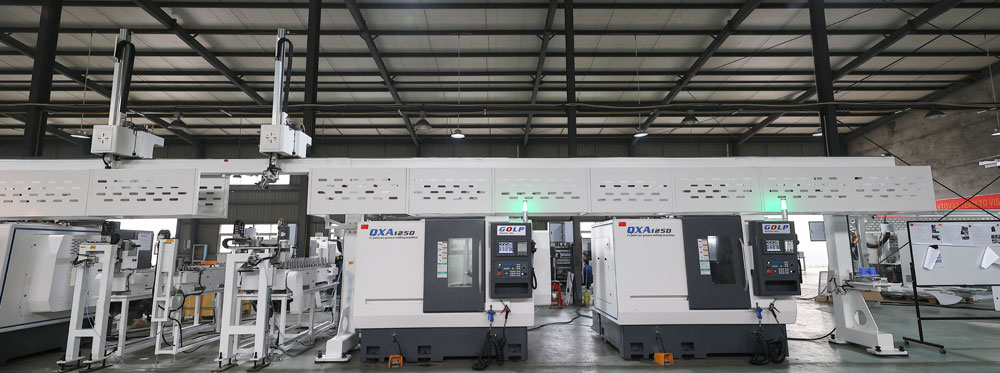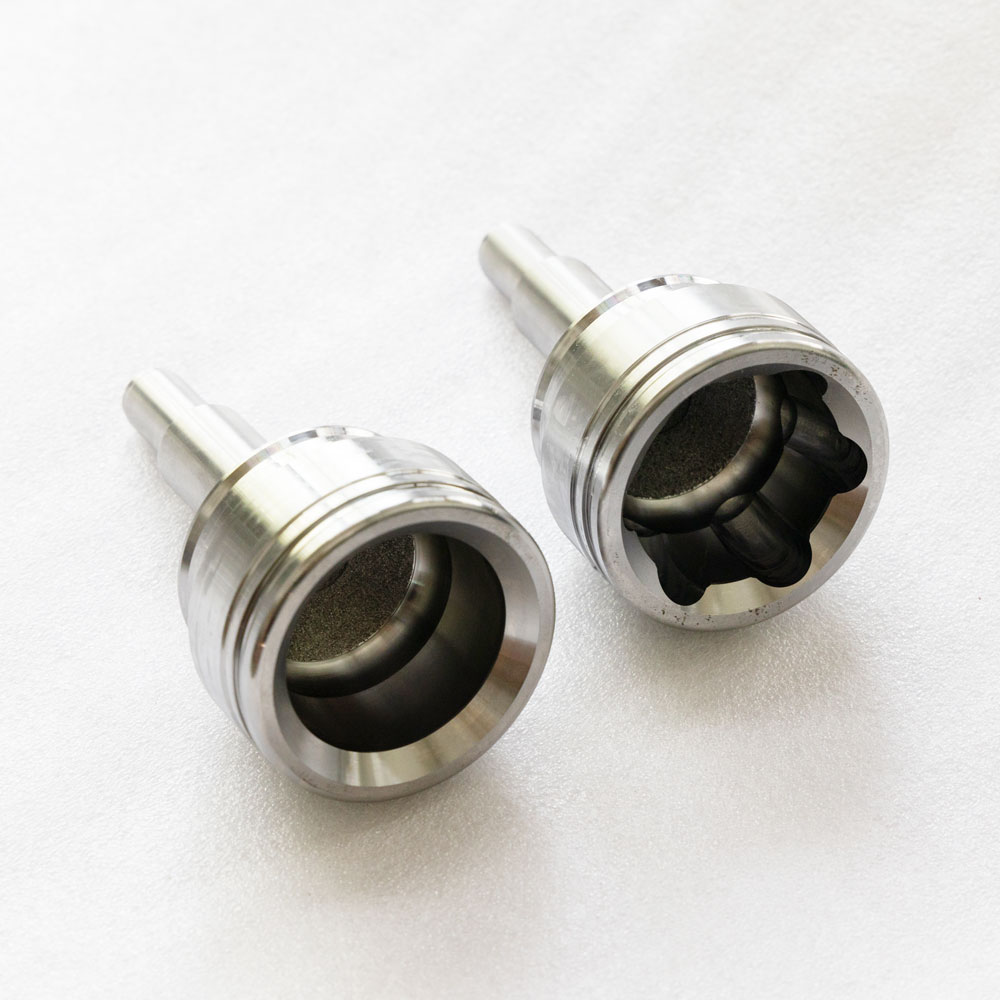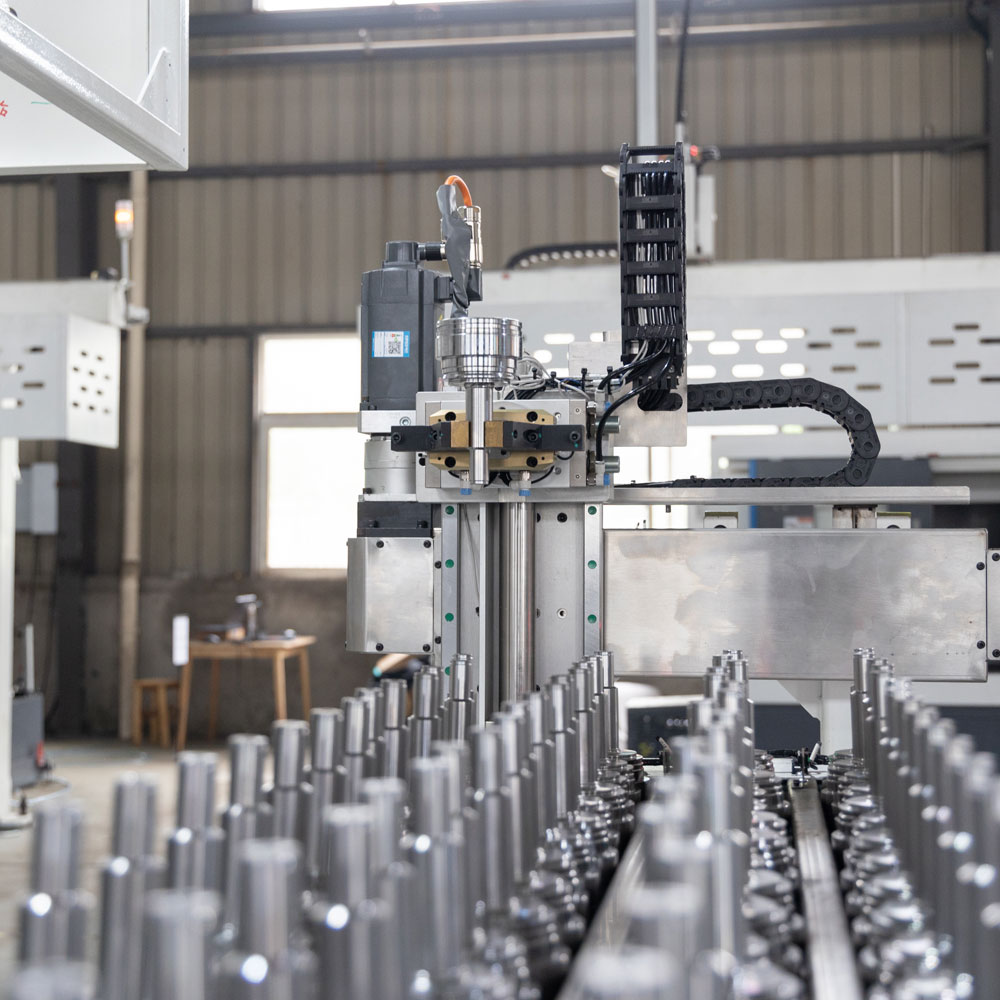Automated cnc Arc Groove Milling for CV joint outer race
Arc Groove Milling Machine: An Automated Solution for Bell Housing CV Joint Machining
In modern automotive manufacturing and component processing, the Constant Velocity Joint (CVJ) plays a crucial role as a key transmission component. Its machining precision and efficiency are held to very high standards. In particular, the precision milling of the ball cage arc grooves in the bell housing is a core step in the entire production process.
To meet the high-precision and high-efficiency demands of these complex work pieces, the arc groove milling machine was developed. With the integration of automation systems, this milling solution has evolved into a smart and efficient production tool.

I. Definition of the Arc Groove Milling Machine
The arc groove milling machine is a CNC equipment specially designed for machining the internal arc-shaped grooves (ball cage tracks) inside the bell housing of CV joints. It features a high-rigidity structure and is controlled by a CNC system. With specialized arc groove milling cutters and a high-precision spindle, it enables high-accuracy multi-axis machining.
In traditional processes, arc groove machining relied heavily on multiple setups and manual operation, resulting in low efficiency and inconsistent accuracy. Modern arc groove milling machines, integrated with automatic loading/unloading systems, clamping devices, flipping mechanisms, and tool management systems, significantly enhance automation levels and meet the needs of large-scale, high-consistency production.

II. Core Functions
1. Arc Groove Milling Function
Equipped with high-speed spindles and dedicated form cutters, the arc groove milling machine precisely mills multiple equidistant ball cage grooves inside the bell housing according to preset paths, ensuring ideal shape accuracy and surface quality for each groove.
2. Multi-Axis Control
Typical configurations use three or five-axis linkage (e.g., XYZ + rotary axes) to perform complex spatial trajectory machining, ensuring the 3D accuracy of the curved grooves.
3. Automatic Loading and Unloading System
With a gantry robot system, the machine automates workpiece handling, clamping, flipping, and unloading, reducing manual intervention and improving production cycle time.
4. Clamping System
Includes internal expanding jaws, hydraulic fixtures, and flipping mechanisms to ensure stable positioning and high repeatability during machining.
5. Tool Management System
Supports quick-change tooling, preset tool data, and spindle cooling, extending cutting tool life and boosting processing efficiency.

III. Typical Application Fields
The arc groove milling machine is widely used in the following industries:
Automotive Transmission Manufacturing
Primarily used for machining the inner ball cage (bell housing) of CV joints in vehicles such as sedans, SUVs, and new energy vehicles.
Mass Production of Automotive Components
Offers dedicated automation solutions for production lines, making it an essential tool for improving automation levels in parts manufacturing.
Precision Transmission Component Manufacturers
Ideal for manufacturing parts like electric vehicle drive shafts or precision industrial CV components.

IV. Automated Integration Configuration
To meet the goals of 'unmanned operation'and'flexible production'in modern factories, arc groove milling machines are typically equipped with the following automation modules:
1. Gantry Robot System
Enables automatic workpiece pickup, transfer, and positioning from storage to the machining station. It supports multi-station and multi-equipment linkage, enhancing the overall cycle efficiency.
2. Internal Expanding Jaws + Hydraulic Clamping Fixtures
Ensures stable positioning of the bell housing during machining without damaging the inner surface. Also allows for fast clamping and release, reducing changeover time.
3. Workpiece Flipping Mechanism
Ideal for double-sided or multi-angle groove machining, the integrated flipping action avoids manual handling.
4. Tool Spindle + Dedicated Arc Groove Milling Cutters
High-speed and rigid tool spindles paired with customized cutters ensure groove accuracy and surface quality. They support stable, long-duration cutting.
5. Automated Material Exchange System
Integrated with material identification and sensor feedback, it performs incoming material recognition and finished product sorting to enhance system intelligence.
6. Discharge Conveyor Belt
Transports the finished workpieces to designated stations for subsequent inspection, cleaning, or packaging.

V. Core Advantages of Automation
1. High Precision Machining
CNC-controlled path ensures accurate curved trajectory, with repeatability within ±0.01mm, meeting strict consistency requirements for grooves.
2. High Degree of Automation
Automatic loading, flipping, clamping, and tool changing allow for fully unmanned operation, significantly raising automation levels in the workshop.
3. Improved Efficiency, Reduced Labor Costs
Significantly shortens the overall machining cycle. One machine can replace multiple manual steps, reducing labor demand and operational risks.
4. Purpose-Built Design
Unlike general-purpose CNC machines, arc groove milling machines are specially designed for targeted processes, offering compact structure, high rigidity, and easy maintenance—ideal for scaled production.
5. System Stability and Expandability
The machine's control system supports integration with MES/ERP platforms and remote monitoring, laying the groundwork for smart manufacturing upgrades.
VI. Future Development Trends
As the automotive industry moves toward electrification and intelligence, the requirements for precision and efficiency in parts processing continue to rise. Arc groove milling machines will continue to evolve in the following directions:
Flexible design that supports multi-model switching
Integration with vision systems for material recognition and defect detection
Seamless connectivity with smart factory systems for full-process data tracking and analysis
Enhanced energy efficiency for sustainable manufacturing
Conclusion
The arc groove milling machine is not just a dedicated piece of equipment—it is the 'intelligent core'of modern CV joint production lines. With its fully integrated automation system, it empowers manufacturers to transition from'efficiency-first'to a balanced strategy of'precision + intelligence.'
Whether it's increasing capacity, optimizing workflow, or advancing toward smart manufacturing, choosing a high-performance, intelligent arc groove milling machine is a key step toward driving the future of industrial productivity.


